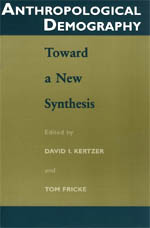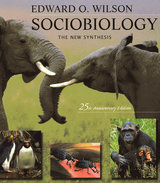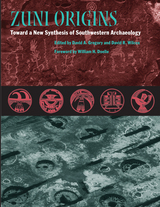
Showing that the two disciplines have much to offer each other, this book bridges the demography/anthropology divide. The editors begin the volume with an in-depth historical account of the relations between the fields. Eminent contributors from both disciplines then examine the major issues and controversies in anthropological demography, including the demographic implications of differing family and kinship systems; the influence of new developments in cultural, gender, and identity theory on population study; the limits of quantitative approaches in demographic study; and demographers' views of the limits of anthropological methods.

Invasive alien species are among today's most daunting environmental threats, costing billions of dollars in economic damages and wreaking havoc on ecosystems around the world. In 1997, a consortium of scientific organizations including SCOPE, IUCN, and CABI developed the Global Invasive Species Programme (GISP) with the explicit objective of providing new tools for understanding and coping with invasive alien species.
Invasive Alien Species is the final report of GISP's first phase of operation, 1997-2000, in which authorities from more than thirty countries worked to examine invasions as a worldwide environmental hazard. The book brings together the world's leading scientists and researchers involved with invasive alien species to offer a comprehensive summary and synthesis of the current state of knowledge on the subject.
Invasive alien species represent a critical threat to natural ecosystems and native biodiversity, as well as to human economic vitality and health. The knowledge gained to date in understanding and combating invasive alien species can form a useful basis on which to build strategies for controlling or minimizing the effects in the future. Invasive Alien Species is an essential reference for the international community of investigators concerned with biological invasions.

When this classic work was first published in 1975, it created a new discipline and started a tumultuous round in the age-old nature versus nurture debate. Although voted by officers and fellows of the international Animal Behavior Society the most important book on animal behavior of all time, Sociobiology is probably more widely known as the object of bitter attacks by social scientists and other scholars who opposed its claim that human social behavior, indeed human nature, has a biological foundation. The controversy surrounding the publication of the book reverberates to the present day.
In the introduction to this Twenty-Fifth Anniversary Edition, Edward O. Wilson shows how research in human genetics and neuroscience has strengthened the case for a biological understanding of human nature. Human sociobiology, now often called evolutionary psychology, has in the last quarter of a century emerged as its own field of study, drawing on theory and data from both biology and the social sciences.
For its still fresh and beautifully illustrated descriptions of animal societies, and its importance as a crucial step forward in the understanding of human beings, this anniversary edition of Sociobiology: The New Synthesis will be welcomed by a new generation of students and scholars in all branches of learning.

The Zuni are a Southwestern people whose origins have long intrigued anthropologists. This volume presents fresh approaches to that question from both anthropological and traditional perspectives, exploring the origins of the tribe and the influences that have affected their way of life. Utilizing macro-regional approaches, it brings together many decades of research in the Zuni and Mogollon areas, incorporating archaeological evidence, environmental data, and linguistic analyses to propose new links among early Southwestern peoples.
The findings reported here postulate the differentiation of the Zuni language at least 7,000 to 8,000 years ago, following the initial peopling of the hemisphere, and both formulate and test the hypothesis that many Mogollon populations were Zunian speakers. Some of the contributions situate Zuni within the developmental context of Southwestern societies from Paleoindian to Mogollon. Others test the Mogollon-Zuni hypothesis by searching for contrasts between these and neighboring peoples and tracing these contrasts through macro-regional analyses of environments, sites, pottery, basketry, and rock art. Several studies of late prehistoric and protohistoric settlement systems in the Zuni area then express more cautious views on the Mogollon connection and present insights from Zuni traditional history and cultural geography. Two internationally known scholars then critique the essays, and the editors present a new research design for pursuing the question of Zuni origins.
By taking stock and synthesizing what is currently known about the origins of the Zuni language and the development of modern Zuni culture, Zuni Origins is the only volume to address this subject with such a breadth of data and interpretations. It will prove invaluable to archaeologists working throughout the North American Southwest as well as to others struggling with issues of ethnicity, migration, incipient agriculture, and linguistic origins.
READERS
Browse our collection.
PUBLISHERS
See BiblioVault's publisher services.
STUDENT SERVICES
Files for college accessibility offices.
UChicago Accessibility Resources
home | accessibility | search | about | contact us
BiblioVault ® 2001 - 2024
The University of Chicago Press









